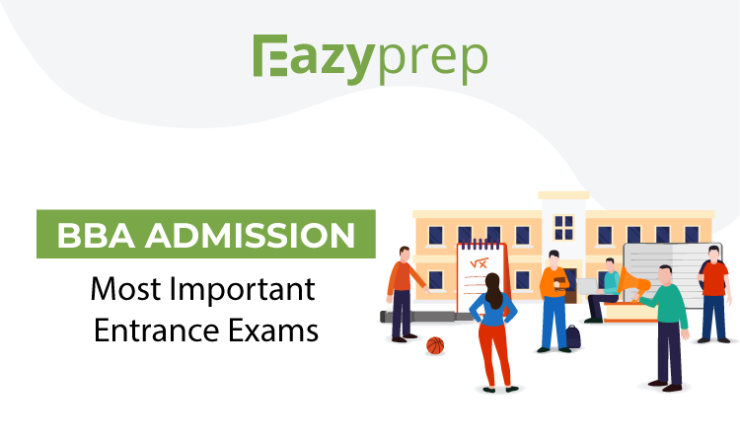![]()
Picture this, you study for hours and hours without any breaks till your exam comes. However, when you see the question paper, you just seem to not remember the answers or the concepts clearly. All you can think of in your head is a big and loud, “Why?! I had studied for this! Why can’t I remember this?”. Such incidents have happened with the best of us, and the only way to avoid it from happening again is by adopting a proper revision method.
Revision is a process of going through what you have learned in the past for improving your grasp on the material. While students believe that only studying hard will lead them to great marks, it is not entirely possible without taking time to revise the already learned concepts. Therefore, it becomes essential to have a great revision method, which not only helps you retain the knowledge you gather while studying, but also helps you score your desired marks. Curious to know how to up your revision game?
Try these 10 easy revision hacks
1. Prepare a revision time table
Just like you have a study schedule, your revision also needs a well planned schedule which you can stick to. It is vital to have a well planned out revision schedule for every week before your exams to get the best of the preparation time. Having a schedule motivates you to revise everyday post studying so as to make sure that you have really grasped what you learned during the day for different subjects. You can also mark off topics which you have finished and revised so as to keep a check on your daily progress.
2. Effective note making
One of the most important hacks to revise properly is to have a good note making method. Oftentimes, students tend to write in big chunks and paragraphs which are very hard to read and revise at a glance. The best approach to revision is through effective note making. You should make easy to read notes using bullet points and easy sentences. Looking back at such notes while revising will make you remember the concepts with much more ease.
3. Use of flash cards
A good way to remember concepts and topics is by making flash cards. You can write down important topics and points on a piece of paper and try to remember your answers by making use of these flashcards. When you look at important words and points written in these flashcards, you are more likely to remember the associated topics and answers to them. If you want to go eco friendly, you can also make notes on your mobile phone or laptops and use a similar trick while revising your lessons.
4. Take help of drawing
Who says studying and revision needs to entail only words? You can go creative by making drawings, diagrams, tables, etc which will act as visual cues to help you memorise and revise the concepts with an ease. By breaking down information into drawings and diagrams, you actually help you mind in understanding the concept efficiently. Also, one more advantage of taking help of drawing is that they are easy to read through and understand when revising before exams.
5. Explain it to yourself and others
It has been found out that if you try to explain your recently learned concepts and ideas to someone, or even yourself, you are 95% more likely to remember it for a long period of time. By explaining it to someone, or discussing it with friends and family, you actually revive the memory of your learning process and understand the topics even better. It forces your mind to clarify the information you gathered while studying and presenting it in a concise and simple manner.
6. Read aloud
It has been found out that when you read aloud, rather than read silently while revising you are 12% more likely to remember it. When you revise by speaking the words or saying the concepts with your mouth, there is a special production effect which makes it more likely for your brain to remain the uttered words than when you simply read through them. The more involved you are in the revision process, the more likely you are to remember things for a long period of time.
7. Close your eyes
According to a study conducted by the University of Surrey, if the participants closed their eyes to recall some information about the recent past, they were 23% more likely to remember this than those who tried to remember details with their eyes open. The same tip can be applied while revising too. If you revise with your eyes closed, and saying the concepts aloud to yourself, you are more likely to revise it with efficiency and remember it for a long period of time.
8. Be active while revising
Studying and revising are an active process, it requires you to be fully present in the process for you to reap any benefits from it. Engage with your study material, ask yourself questions, and try to answer them without looking at your notes. You can also make small pointers and notes at the margin which will help you understand the text better. When you undertake an activity with full curiosity and attention you are more likely to understand it and also have fun in the process. If you keep treating revision as a chore, where you need to skim through the notes absentmindedly just to get over it, it will not achieve anything. Rather, make it a point to engage with the texts, and be active in the revising process than just being a passive reader.
9. Summarise your learning
A very simple yet essential revision hack is to summarise what you learn after every study session. Rather than leaving the revision for only the last minute, you can inculcate the habit of summary writing after every study session to make sure you have gathered the essence of the topics or not. You need not write a page, but only a few sentences in your words of what you learnt is a great way to revise. By doing this, not only will you stay up to date with your revisions, but will also retain the concepts and topic way better, than if you leave it to be done later.
10. Highlight important concepts and points
Lastly, look through the last year exam papers and try to understand the important questions and topics which have been asked every year in exams, as these are the important topics that you should prepare for nicely. To make your revision process more easy and fruitful, it is very useful to highlight necessary concepts and associated points. By highlighting them you can easily find them in a sea of other useful as well as less important concepts, and quickly go through these topics with ease.
As important it is to study with utmost concentration, it is equally essential to revise with a good method which will help you reap maximum benefits from your time and efforts. If you follow the above revision hacks, you can easily do great in your exams and achieve the goals that you have set for yourself. Therefore, make sure that you give as much importance to revision as you do for studying. All the best!


